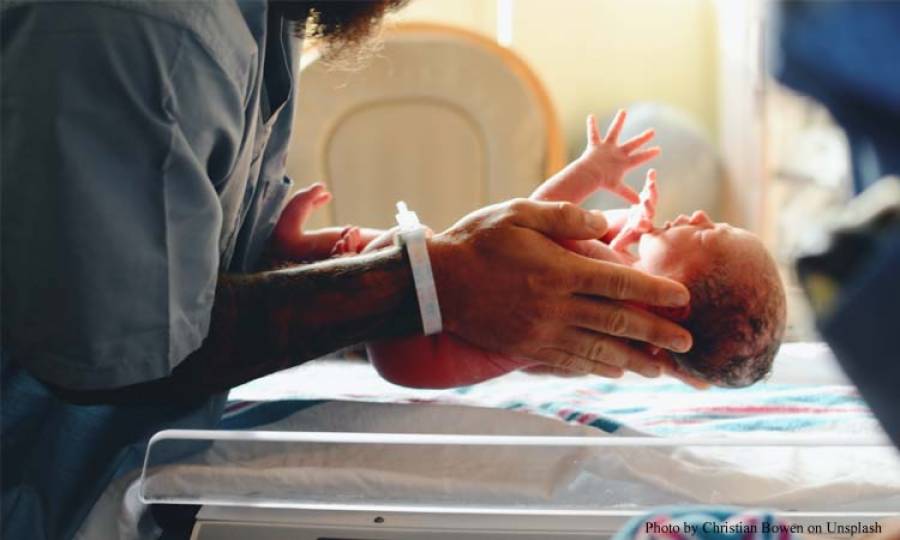UNICEF Calls For Action On World Prematurity Day

The United Nations Children's Fund (UNICEF) called for accelerated efforts to save the precious lives of children born prematurely as World Prematurity Day (WCD) was commemorated on November 17, 2021.
The theme this year was "Zero Separation Act now! Keep Parents And Babies Born Too Soon Together", said a press release.
In Pakistan, preterm birth is one of the three leading causes of neonatal mortality and accounts for more than one-third of all deaths in newborns. UNICEF collaborates with the Ministry of National Health Services, Regulations and Coordination, and provincial health departments to establish the Kangaroo Mother Care (KMC) units in health facilities across the country to save the lives of children born too soon.
KMC is one of the best options to provide care for babies born before time in low and middle-income countries.
"Scaling up Kangaroo Mother Care in health facilities across Pakistan is a cost-effective intervention to save preterm infants," said Aida Girma, UNICEF Representative in Pakistan.
"Introduced in Pakistan by UNICEF a few years back, KMC has become increasingly popular with health professionals caring for children born before time. The essence of KMC is to keep parents and babies born before time together as against the past practice of separating small and sick babies from their mothers. The physical and emotional closeness of baby and parents during birth, delivery and hospitalization has long-term health benefits. Additional care during pregnancy, complete antenatal care, nutritious food, mental and psychosocial support to pregnant women and birth spacing can reduce premature births," Ms Girma added.
A newborn is held closely to the chest by the parent with a blanket wrapped around both. Skin-to-skin contact provides warmth and prevents hyperthermia. It is medically beneficial for the baby and suitable for parent-child bonding.
So far, 30 KMC units have been established in Pakistan with support from UNICEF and other development partners for round the clock service delivery. UNICEF has provided all the necessary equipment and materials to help establish 24 units in various public health centres - 16 in Punjab, 4 in Sindh, 1 in KP, 1 in AJK and 2 in Islamabad Capital Territory. It is collaborating with the government to scale up KMC units across the country.
The government of Pakistan and its development partners are trying to reduce preterm births and newborn mortality due to related complications such as Birth Asphyxia, Prematurity and Sepsis. These efforts have helped reduce newborn mortality from 55 to 42 deaths per 1,000 live births during the last five years. It has also had a remarkable impact on morbidity in preterm newborns.
Globally, preterm birth is one of the leading causes of child deaths under age five. Almost 15 million babies are born prematurely, and nearly 1 million die due to related complications. Across 184 countries, preterm birth rates range from 5% to 18% of babies born. Tiny and sick newborns, most of whom are born preterm, have the highest risk of death and contribute to most of the world's disabled children.
Inequalities in survival rates around the world are stark. In low-income settings, half of the babies born at or below 32 weeks die due to a lack of feasible, cost-effective and primary care, e.g. warmth, breastfeeding support, basic care for infections and breathing difficulties.
Advertisement
Trending
Popular
Hair loss: Discovery uncovers key stem cells that could reverse ...
-
Broccoli sprout compound may help lower ...
11:31 AM, 25 Feb, 2025 -
Gas Pain vs. Heart Attack: How to tell ...
09:00 PM, 22 Feb, 2025 -
Coconut oil supplement shows promise ...
08:00 PM, 20 Feb, 2025 -
Normal vitamin B12 levels may still ...
05:00 PM, 19 Feb, 2025



